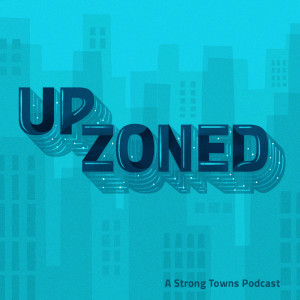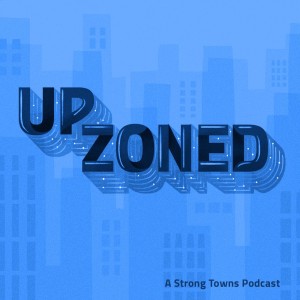
It’s right there in the Strong Towns Strength Test: “If you wanted to eat only locally-produced food for a month, could you do it?”
And for many towns that want to become financially resilient, the question of how to feed their citizens is among the first that comes up. After all, if your town is struggling to keep even a handful of grocery stores open in your walkable neighborhoods, how can you even think of addressing more intractable problems, like shrinking the footprint of your road network to a scale you can afford to maintain? You need those roads to get people out to the mega-grocery at the edge of town. Or alternatively, if your town is trying to wean yourselves off of the kind of corporate subsidies that never seem to pay off, how can you ever cut the cord if you need that big chain grocery store where everyone goes to buy their milk?
If you’re screaming words like “community gardens!” and “rooftop farms!” at the screen right now, not so fast. Because according to a recent article from Anthropocene, these hyper-local solutions can only go so far—and in some cases, some of them are only producing the kind of expensive local food that makes the wealthy feel better about supporting a nearby farm, and not the kind of much-needed nutrients that the low-income still struggle to access.
So what does the Strong Towns advocate say to all this? Is it really impossible to feed your citizens without leaning on tax incentives to grocery store chains, token produce aisles in big box stores, and other bad choices that will make your place go broke over time? Are community herb beds and vegetable plots in street medians really just silly half-answers to a problem that’s way bigger than any town can hope to solve, or are they important community-strengthening tools? Can any urban environment pass the Strong Towns strength test, or will the local food question bring even the strongest towns grinding to a halt? And conversely, can the few towns that do pass this question on the test—the ones in agricultural communities—ever hope to pass the others?
Those are the tough questions we tackle in the latest episode of Upzoned. And then in the Downzone, Chuck and Kea talk about their Lenten-season reads, as well as their not-at-all Lent-related watches (hint: Superhero movies).
More Episodes
 2020-07-01
2020-07-01
 2020-06-24
2020-06-24
 2020-05-27
2020-05-27
 2020-04-01
2020-04-01
 2020-03-13
2020-03-13
Create your
podcast in
minutes
- Full-featured podcast site
- Unlimited storage and bandwidth
- Comprehensive podcast stats
- Distribute to Apple Podcasts, Spotify, and more
- Make money with your podcast
It is Free
- Privacy Policy
- Cookie Policy
- Terms of Use
- Consent Preferences
- Copyright © 2015-2024 Podbean.com






